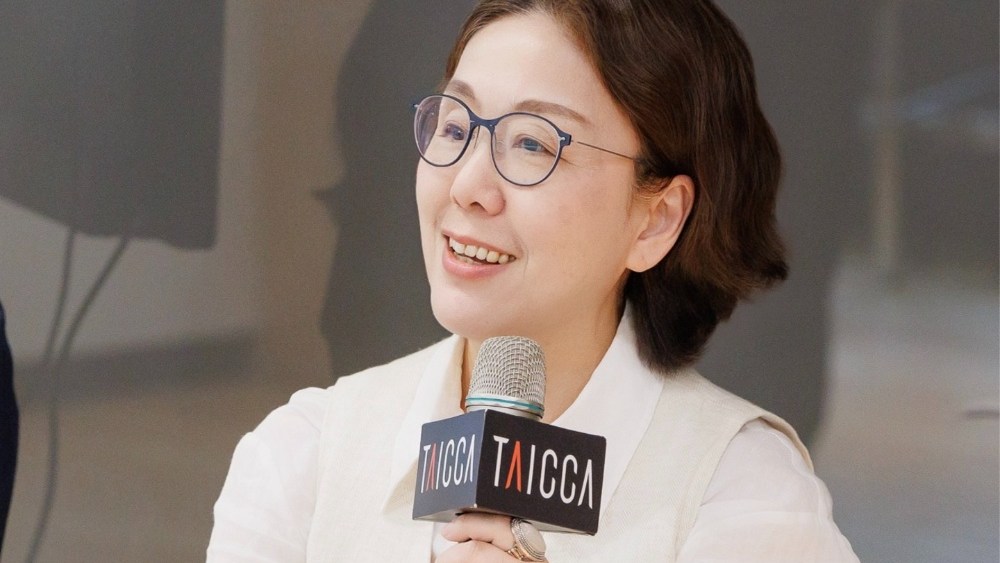Taiwan Creative Content Agency (TAICCA) Chairman Hsu Wang said that as the global content industry undergoes major changes, Taiwan’s Cultural Affairs Agency is positioning the island nation to stay ahead of the curve through technological innovation, increased investment, and stronger industry collaboration.
Speaking at the 2025 Taiwan Creative Content Fest (TCCF), Wang outlined an ambitious three-year vision centered on leveraging Taiwan’s technological capabilities as a foundation for innovation in the creative field. The strategy comes at a time when major changes to existing business models remain uncertain across the entertainment industry.
“Taiwan is positioning itself as a country that stays ahead of the curve and survives the transition period,” Wang said, highlighting three key pillars: technological innovation, increasing investment through ESG (environmental, social, and governance) alignment, and strengthening connections across industry value chains.
TCCF has evolved into a platform designed to compress the traditional linear content development process, allowing investors and marketers to engage with projects from the earliest stages. Festival pitch sessions currently span a variety of categories, including projects and story tracks, and cover everything from early creative development to award initiatives.
“One of the key challenges in today’s industry is the need to introduce marketing and investment considerations at the very beginning of project development,” Wang explains. “TCCF provides a platform for these stakeholders to engage early in the process.”
The goal is to foster collaboration and investment partnerships across Taiwan’s cultural content ecosystem by connecting creators, marketing teams, production partners, and investors from the beginning.
Building on South Korea’s success in spreading culturally specific content around the world, Taiwan is doubling down on credibility. “Taiwan recognizes the importance of the principle ‘the more local, the more global’,” Wang said.
This year, Taiwanese works explore themes such as women and gender issues and democratization, themes that reflect the growing self-consciousness of the island’s creative industries. Taiwan’s status as the only country in Asia where same-sex marriage is legal gives it a unique position in regional cooperation.
“For countries where same-sex marriage has not yet been legalized, cooperation with Taiwan provides an opportunity to work in a freer, open and inclusive environment,” Wang points out.
Looking to the future, Wang believes Taiwan’s competitive edge lies in weaving technology throughout the content creation process. From AI tools and virtual design that enrich production to cross-platform adaptation and integrated digital marketing, technology acts as both an enabler and a connector.
“With Taiwan’s strong technological background and computing power, we have the potential to shape an evolving creative ‘format’. This is not a fixed formula, but a flexible approach that helps creators imagine and create in new ways,” she says.
Immersive works like “The Great Tipsy” and “Luda” exemplify this approach, serving as model cases for IP adaptation and emerging technology applications that can build both investor trust and creator understanding.
To attract private capital, TAICCA focuses on building investment credibility through improved corporate governance and financial management practices in creative enterprises. The agency also employs a co-investment model that shares risk with individual investors.
“TAICCA shows the government is working with private companies by taking on some of the investment risk,” Wang said. This approach aims to encourage participation while strengthening long-term trust in the cultural content field.
The Agency also actively pursues co-investment opportunities from domestic and international companies, particularly through collaboration with private sector ESG initiatives. This reflects the recognition that the new paradigm favors capital concentration and large companies.
Taiwan’s diverse immigrant community has fostered the unique sense of warmth and empathy that Wang describes, which has been reflected in his creative output. She says this sensibility is reflected in the popularity of Taiwanese romantic dramas.
“The ‘romance’ portrayed in these stories is not superficial; it stems from a genuine belief in the beauty, kindness, and emotional integrity of the world,” Wang says. “This heartfelt optimism is part of Taiwan’s cultural DNA in many ways.”
That warmth extends to Taiwan’s creative community itself. Mr. Wang vividly described the atmosphere of the TCCF celebration. “Investors, creators, and industry partners from across the cultural content sector gathered in high spirits, their faces flushed with excitement, raising their glasses, giving the typical Taiwanese thumbs-up, and bending over for photos.”
For Wang, this image captures the essence of what TCCF represents: “a joyful convergence of creativity, collaboration, and shared purpose within Taiwan’s cultural ecosystem.”
As the content industry continues to transform, Taiwan is betting that its combination of technological prowess, cultural authenticity and collaborative spirit will define its creative brands for the next decade.
TCCF will be held from November 4th to 7th.

